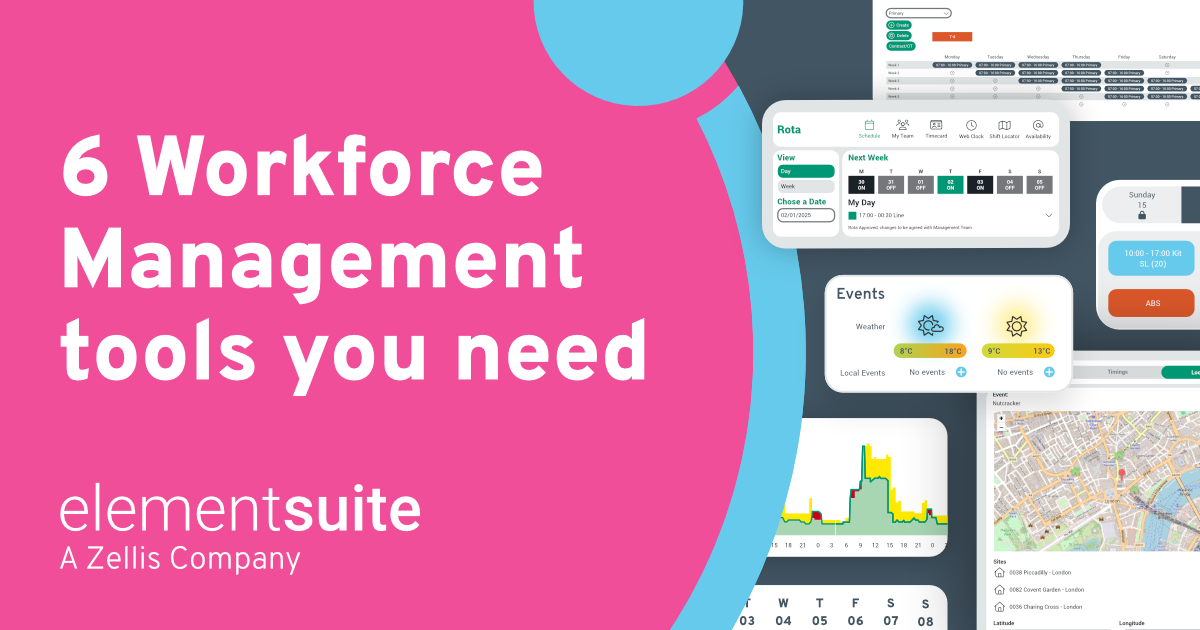For so long, menopause has been a taboo subject both generally and in the workplace. Menopause symptoms can have a significant impact on attendance and performance in the workplace. It can lead to life changing events so severe that women choose to leave the workplace all together.
Menopause is a fact of life
The menopause is a natural stage of life which affects around half of the population. It generally occurs between the aged of 45 and 55 as oestrogen levels decline. Although around 5% of women experience it earlier.
Menopause is not just a gender or age issue as it can impact colleagues, family, friends, partners and spouses both directly or indirectly, putting additional pressures on relationships. This is why it’s so important to imbed menopause as an organisational issue.
It’s simple, staff need to know about it, ensure it’s a topic that’s talked about openly like we do with pregnancy. And provide staff and managers with the tools and support they need along with what to do and where to get help. Many people are completely confused as they don’t know what will help them, which is why the topic is so frequently pushed under the carpet and becomes a taboo subject.
Awareness on the subject is fundamental in reducing the stigma attached to it and its one of the reasons for World Menopause Day, held on the 18th October every year. Talking openly will make it an every day topic, not just limited to those of a certain age.

Source: Government Statistics
Some facts
- 3.5 million women over the age of 50 in the workplace in the UK
- Women make up 77% of the NHS workforce
- The average age of the workforce is increasing. The employment rate for 50-64 year olds has increased from 57.2% in 1995 to 72% in April 2020
- The average age for a person to go through menopause is 51
- Menopause symptoms can last up to 10 years
- Symptoms range from cognitive, physical and psychological such as
- Hot flushes
- Muscular aches and joint issues>
- Bloating and swollen, puffy ankles, feet and hands
- Poor concentration (65%)
- Digestive problems
- Mood swings and irritability
- Depression and anxiety
- Headaches
- Lack of focus, lapses in memory
- Poor sleep
- Panic attacks
- Experience more stress (58%)
- 52% struggle to be patient
- Around one in 100 women experience menopause before the age of 40
- One in four women experience severe symptoms that impact their daily life
There are 3 different stages to the menopause
- Perimenopause – occurs well before you officially hit menopause
- Menopause
- Postmenopause
Some people also experience early menopause as a result of surgery, particular health issues such as cancer. These types of menopause can be more complicated.
Stop menopause stigma and discrimination
A third of people who experience menopause and hide their symptoms at work. With our population living longer, working longer and more people working in their 50’s and beyond, action is needed. If you needed more convincing, according to a government report, menopausal women are the faster growing workforce demographic.
Finally, the legislators are taking note of the issue of menopause seriously and its impact on women’s professional lives. The Women and Equalities committee are want to understand the extent of discrimination and how Government policy and workplace practices should change to better support those experiencing menopause. A solution to the problem is to make menopause a protected characteristic under the Equality Act 2010.
Resent research by CIPD indicates that only 25% of people felt able to explain their symptoms and the reason for them to their manager. This was due to privacy concerns (45%), embarrassment (34%) and unsupportive management (32%).
Employers have a duty of care and a business imperative to take action – they don’t need to wait for legislation.
Role for line managers
Education, education, education.
Many people, including line managers find the topic uncomfortable and don’t feel confident talking about menopause. This mostly stems from a lack of understanding and knowledge. Unlike pregnancy where there is legislation and company rules mapped out prior to the birth of the baby and also returning to work, the same is not true with menopause. With menopause its more complicated as every woman’s experience is different, (although not all pregnancies are the same either. Managers need training, education and a clear understanding of the range of possibilities. They need guidance and support that should be provided through the organisation.
Making the topic and guidance part of line manager education starts to remove the stigma from it. A business doesn’t need to employ women in the age group for this education to be invaluable. Clearer understanding to support life in work as well as away from the workplace.
Line managers don’t need to be medical experts or menopause experts, but a good level of knowledge, understanding and empathy is needed. They need to be equipped to have a good, supportive conversation with staff, without them feeling uncomfortable.
Role for HR
HR have a moral and professional responsibility to tackle the stigma and break the silence of the topic of menopause. As with mental health, it’s the role of HR to raise awareness of the perimenopause, menopause and postmenopause symptoms and how these may affect employees.
This means addressing the topic in terms of how it affects both personal and private lives of staff, and their families, friends and colleagues. The potential impact for family members outside of the work environment: someone living with a partner who has severe symptoms may need support and understanding. Those who are suffering from menopause and those who are impacted by someone with menopause.
For many HR teams, menopause has slipped lower down the agenda, due to the pressures and challenges from COVID-19. Now, with the rise in media attention and the potential of a change in legislation, it needs to be elevated and put high on the agenda.
We understand that time and resourcing pressures may remain a barrier to implementing new initiatives, but HR somehow need to find a way to build menopause awareness within the workplace.
Some organisations have gone as far as implementing a Menopause Policy which have been embedded as part of Equality, Diversity and inclusion policies. In the same way we conduct risk assessments when someone is pregnant, HR should ensure that menopause health and safety are also considered.
Menopause and your organisation
What employers can do is what you’d expect from any employer who wants to attract and retain a diverse and inclusive workforce. Creating an environment to talk about menopause openly, without embarrassment. It’s a natural phase in every woman’s life and needs to be normalised.
Many businesses are following best practice and seeing the benefits of how quickly a once taboo subject is openly being discussed. The Government Equalities Report on Menopause highlights the need for employers to put in place training, processes and information so all colleagues have a clear understanding of menopause. Whether it’s a policy or guidance document – it’s best if it’s written down and well publicised. The report recommends introducing a range of reasonable adjustments. These are usually straightforward and simple to implement, such as a desktop fan or extra uniform, or even flexible working.
Many businesses have more in place than they might think, so a few tweaks, might be all they need. Everyone wants to avoid employee relations issues. Two menopause-related tribunals have already been found in favour of the employee.
Remember, “six in ten women experience menopausal symptoms that and say it has a negative impact on their work”.
With the right support, no one needs to suffer in silence, so let’s break the taboo and start talking openly about menopause at work.







